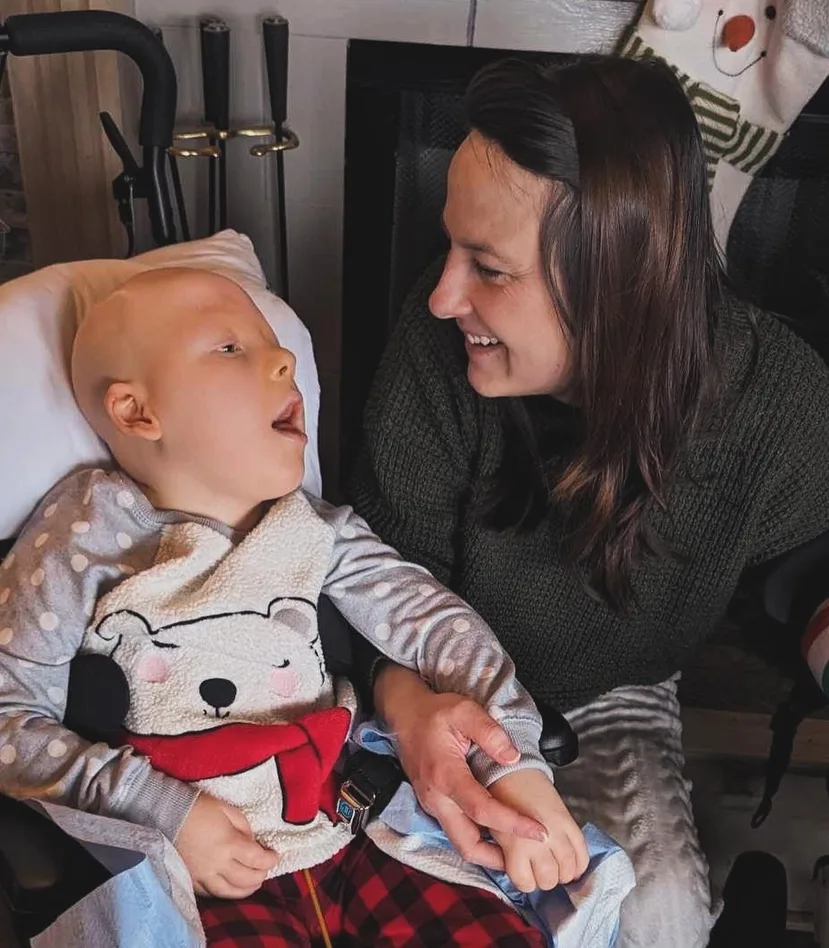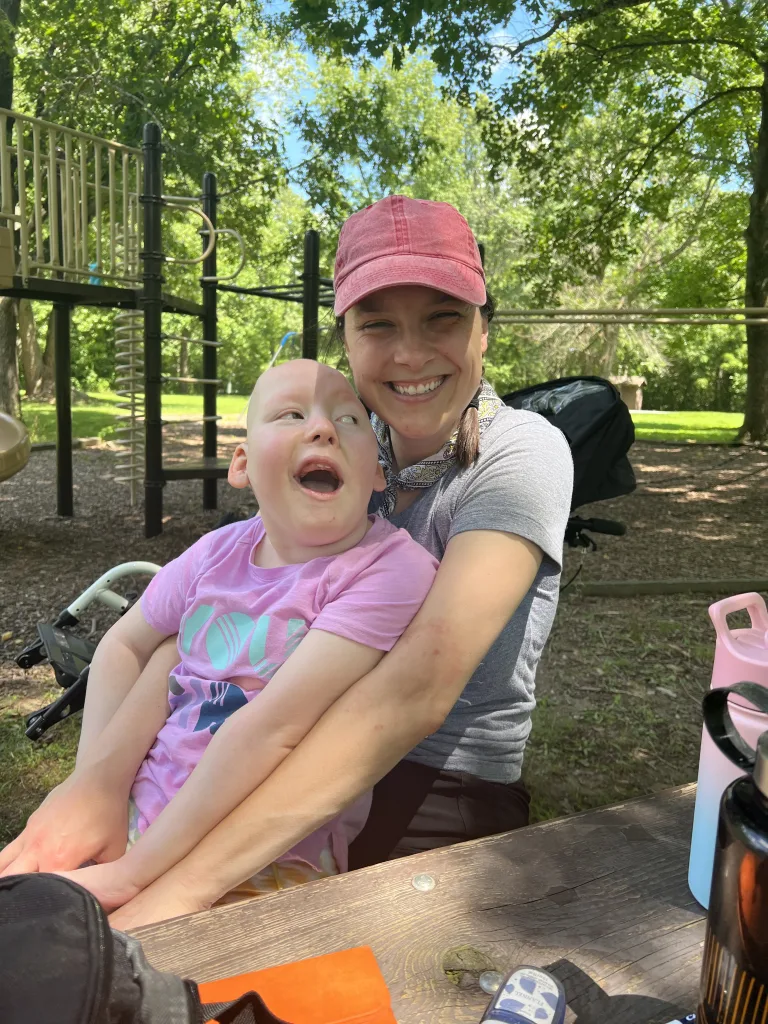Resources to Become a Certified Nursing Assistant
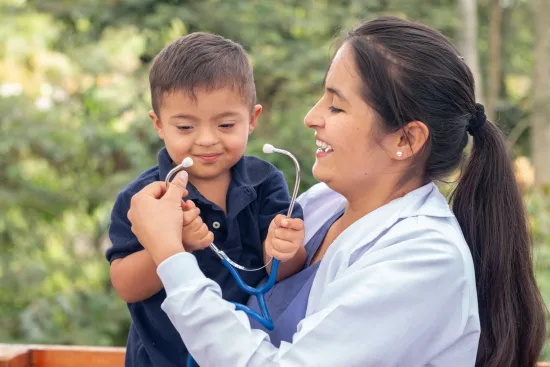
We developed a tip sheet to help guide parents and caregivers through the steps to become a CNA.
We continue to wait for approval to allow parents/legally responsible adults (LRAs) to become paid caregivers if they are a certified nursing assistant (CNA) and employed by a nursing agency.
We understand that our participant families are eager for this change to take effect. Allowing parents and caregivers who are CNAs to become paid caregivers is an important step in strengthening support for families of individuals who need in-home shift nursing.
To help families prepare as we await approval, we’ve put together a Certified Nursing Assistant Resources Tip Sheet.
This tip sheet aims to guide parents and caregivers through the steps to become a CNA. It links to several websites for your convenience and provides general guidelines.
You can also find the CNA Resources Tip Sheet on our Home Care Nursing Information for Families page.
Our Family Advisory Council reviewed this tip sheet to make sure it’s as helpful for families as possible.
Please remember that currently, parents/LRAs can only be paid for providing skilled nursing services to their children if they hold an active registered nurse (RN) or licensed practical nurse (LPN) license. This rule applies to parents/LRAs of all children approved for Home Care Program services, regardless of the child’s age.
The plan to allow CNAs as paid family caregivers requires an amendment to the Medicaid Home and Community-Based Services Waiver for Those Who Are Medically Fragile, Technology Dependent (MFTD waiver). It also requires the creation of a new state plan amendment. Both approvals must be in place to allow for this change.
There is currently no set timeline for the state plan amendment and the MFTD waiver amendment to be approved.
Once approved, we will notify you as quickly as possible.
If you have any questions, please contact your DSCC Care Coordinator at (800) 322-3722.
NurseNet Simplifies the Search for In-Home Nursing
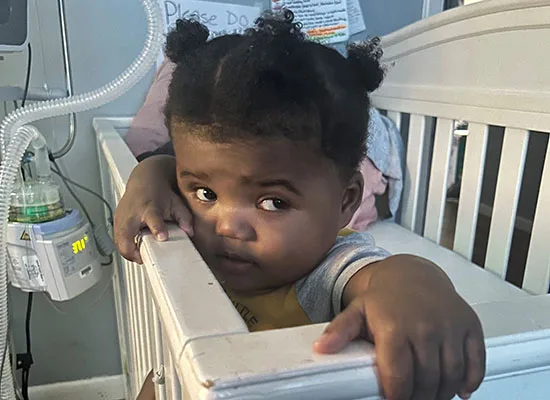
Home Care Program parent praises NurseNet as an easy way to find available nurses in your area
The search for in-home nurses can be exhausting for many families of loved ones with complex medical needs.
Home Care Program parent Shekia Wright understands this challenge.
She recently tried NurseNet to find available nurses for her 1-year-old son, Kaharri Pittman (pictured above). He has a tracheostomy and relies on a ventilator to breathe.
Shekia set up a NurseNet account and entered Kaharri’s nursing needs.
She quickly found two available matches from two different nursing agencies. Overall, she was impressed with how easy NurseNet is to use.
“It was easy to set up the account and easy to find available nurses,” Shekia said. “I would recommend NurseNet to any families looking for nursing.”
NurseNet is a new tool that makes it easier for families to find the in-home nursing care their child needs. We created NurseNet to be an online resource that connects families with available in-home nursing providers throughout Illinois.
Families can use NurseNet to share their nursing needs. Nursing agencies that are enrolled with the Division of Specialized Care for Children (DSCC) can see this information and contact families if they have available nurses who match the child’s care needs.
Nursing agencies can also use NurseNet to share information about where nurses are available.
This information can help families find suitable nursing care. It can also help nursing agencies identify opportunities to serve families.
How NurseNet Helps Families
- Easy Access: NurseNet is available 24/7, giving you the flexibility to search for nursing providers at your convenience.
- Comprehensive Listings: The tool includes a wide range of in-home nursing providers across the state, ensuring you have multiple options to choose from.
- Direct Connection: You can contact nursing providers directly through NurseNet, making the process of securing care for your child quicker and more straightforward.
How to Get Started
We encourage you to visit our NurseNet page and explore this new tool. There you’ll find guides and how-to videos to help you get started.
If you have problems accessing NurseNet, please send an email to dsccexternalhelp@uic.edu.
You can also talk to your DSCC Care Coordinator to help you get started. Your Care Coordinator can assist with the sign-up process during your next home visit.
We understand how important it is to have reliable, skilled nursing care for your child. We believe NurseNet will significantly improve your ability to find the support you need!
Share Your Feedback on Key MFTD Waiver Updates to Strengthen Support for Families
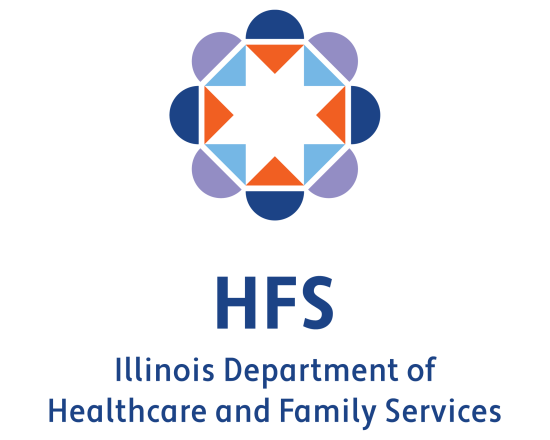
Families have through Sept. 28, 2024, to share input on waiver amendments allowing CNAs to become paid family caregivers and nursing rate increases.
Families have an opportunity to share feedback on several significant updates to the Medicaid Home and Community-Based Services Waiver for Those Who Are Medically Fragile, Technology Dependent (MFTD waiver).
The Illinois Department of Healthcare and Family Services (HFS) is the Medicaid agency responsible for the MFTD waiver. Many families in the Home Care Program have children who receive services through this waiver.
HFS is currently seeking approval from the federal Centers for Medicare and Medicaid Services (CMS) for waiver amendments that will:
- Allow parents who are certified nursing assistants (CNAs) to be paid family caregivers
- Increase rates for in-home nurses and CNA services
Read below for more details about these amendments and how to share your input.
CNAs as Paid Family Caregivers
Plans are underway to allow parents/legally responsible adults (LRAs) to become paid caregivers if they are a CNA and employed through a nursing agency.
Currently, parents/LRAs are paid for providing skilled nursing services to their children if they hold an active registered nurse (RN) or licensed practical nurse (LPN) license. This rule applies to parents/LRAs of all children approved for Home Care services, regardless of the child’s age. (Read more about our efforts to make paid licensed family caregivers a permanent benefit.)
Allowing parents and caregivers who are CNAs to become paid caregivers is an important step in strengthening our support for families of individuals who need in-home shift nursing.
This update would give more parents/LRAs the opportunity to earn payment for the caregiving they provide their children at home.
This change requires an amendment to the MFTD waiver as well as the creation of a new state plan amendment.
Nursing Rate Increase
HFS is also proposing a 7 percent rate increase for in-home nurses and CNA services to take effect on Jan. 1, 2025.
This rate increase would affect:
- RN, LPN and CNA care
- In-home and facility-based respite care
- Nurse training rates
The proposed rates are as follows:
- RN, $57.78 per hour
- LPN, $48.15 per hour
- CNA, $32.10 per hour
We hope this rate increase can help make more high-quality nursing options available for our participant families.
Transitional Care Services provided outside the home (not an MFTD waiver service) is expected to have a rate increase from $950 to $1,300 a day. This increase would also take effect on Jan. 1, 2025.
Other Key Updates in the Amendment Include:
- Adds adaptive equipment and assistive technology as new services.
- Makes pest control a post-approval process. This change means families will not need to receive prior approval for pest control services.
- Makes the Division of Specialized Care for Children (DSCC) the entity responsible for the prior approval for home accessibility modifications, vehicle modifications, medical equipment operating expenses, adaptive equipment, placement maintenance counseling and assistive technology.
- Removes the requirement of two bids if the cost exceeds $2,000 for waiver services. This change is necessary to help increase access to services.
Share Your Feedback
The public comment period for these proposed waiver amendments is now open.
To review the full list of proposed waiver updates, you can:
- Review a hard copy at HFS’ offices at:
- 201 South Grand Ave. E.,
Springfield, IL 62763 - 401 S. Clinton
Chicago, IL 60607
- 201 South Grand Ave. E.,
The deadline to provide feedback is Sept 28, 2024.
You can share your feedback in two ways:
- Via email to HFS.HCBSWaiver@illinois.gov
- Via mail to the Illinois Department of Healthcare and Family Services, Attention: Waiver Operations Management, 201 South Grand Ave. E., 2FL, Springfield, IL 62763
This public comment process is one of the best ways you can have your voice heard.
HFS will send your comments to the federal CMS as part of the waiver approval process.
If you have questions, please contact HFS’s Waiver Operations Management Unit at (217) 524-4148 or (844) 528-8444.
In-Depth Simulated Training in Chicago for Families and Caregivers of Children with Complex Medical Needs
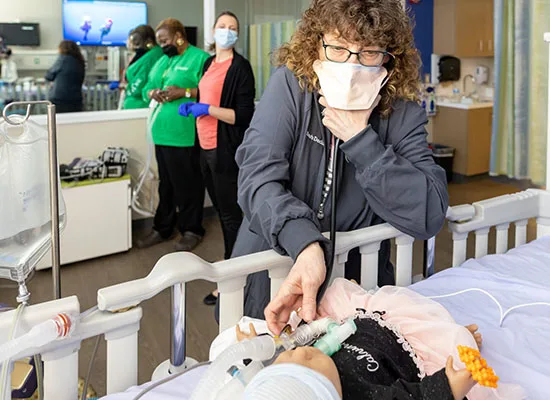
This free in-person training will take place Sept. 24-25 at UIC’s Simulation and Integrative Learning Center in Chicago.
Registration is now open for a special in-person training program for the families and caregivers of children with complex medical needs.
This free two-day training will take place Tuesday, Sept. 24, and Wednesday, Sept. 25, at the University of Illinois Chicago Simulation and Integrative Learning (SAIL) Center on the fifth floor at 1220 S. Wood St. in Chicago.
Families have shared the need for more support for parents/caregivers of children with complex medical needs. We are excited to partner with Almost Home Kids to provide this valuable training opportunity. It will offer essential tools and knowledge to help you in your caregiving journey.
You may attend this training if you:
- Are the parent or caregiver of a child in the Home and Community-Based Services Waiver for Those Who Are Medically Fragile Technology Dependent (MFTD waiver)
- Have prior experience in caring for a child with a tracheostomy (trach) tube and/or a child with a trach tube and ventilator
- Are able to commit to online learning before the in-person learning days
- Can attend both dates to complete the training
The training will be from 8 a.m. to 4:30 p.m. each day. The in-depth curriculum will include:
- Reducing the risk of infection
- Skin care
- Daily care of the child with a tracheostomy and ventilator
- Activity and movement
- Equipment and alarms
- Gastrostomy care and feeding
- Tracheostomy basics
- Respiratory assessment and interventions
- Ventilator training with hands-on practice
- Emergency preparedness
- Caregiver resiliency and well-being
- Simulation learning experience
You can also see the Caregiver Simulated Training flyer for more details.
Please sign up online to participate in the training. There is no cost to attend.
For more information, contact Yolanda Rivera, Nursing Professional Development Specialist and Clinical Educator, at connect@almosthomekids.org or (630) 271-9155, ext. 114.
This training is part of our efforts to use federal funding from the American Rescue Plan Act to improve support and services for families of children with complex medical needs.
Almost Home Kids (AHK) provides a bridge from hospital to home through an innovative community-based care system for children with medical complexities. Its services include:
- Responding to the needs of families
- Training caregivers
- Advocating for accessibility and inclusion
- Educating healthcare professionals
Almost Home Kids has locations in Chicago, Naperville and Peoria.
Gain Resources and Strategies to Help Your Child Prepare for Adulthood
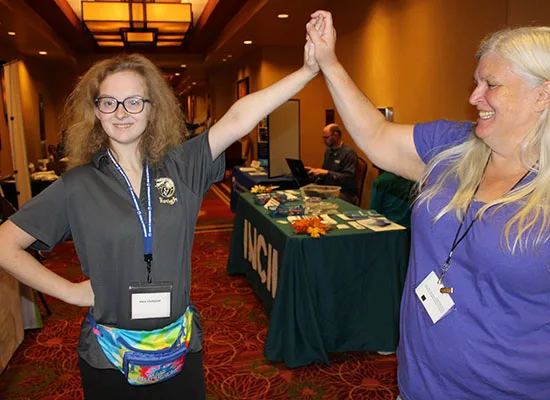
The 2024 Illinois Statewide Transition Conference is happening on Nov. 7-8 in Springfield
Luz Diaz said she struggled emotionally before attending the Illinois Statewide Transition Conference.
She felt isolated and unsure of the future for her daughter, Ariana, now 20. Ariana has cerebral palsy and quadriplegia along with hearing loss and developmental delays.
The knowledge she gained and the connections she made with other families during the 2023 conference immediately lifted her spirits. Luz now feels more hopeful for what lies ahead.
“Before I came here, I was depressed. I felt so lonely. Now that I’ve seen everything here, my thoughts have changed. I don’t feel lonely. I feel like I belong, and I feel like this is my family,” she said. “Now I feel like I’m not alone.”
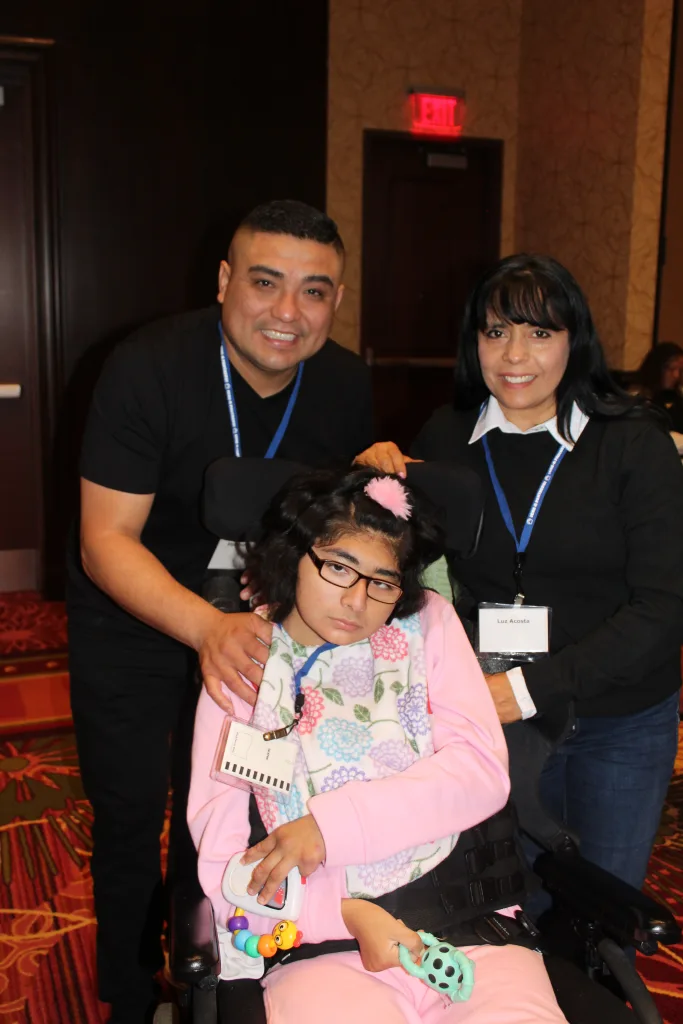
The Diaz family were among 370 people who attended the 2023 transition conference in person in Bloomington-Normal.
The conference, titled “Stepping Stones of Transition,” returns for 2024 at the Crowne Plaza in Springfield, Ill., on Nov. 7-8. This year’s event is in person only.
The conference highlights opportunities and resources available for youth and young adults with disabilities and complex medical needs as they transition to adulthood. It’s a “one-stop shop” for gaining valuable resources, making connections and learning alongside individuals who are on the same journey.
The “Stepping Stones of Transition” conference is for youth, parents, caregivers, vocational specialists, healthcare providers, educators and others who work with youth and young adults with disabilities.
Youth and young adults can visit vendors, attend workshops and learn how to plan for their future, including:
- What happens after I leave high school?
- How do I sort through the maze of resources?
- What steps can I take now to prepare for upcoming changes?
- What skills are important for me to develop?
Highlights for 2024 will include learning about supported decision-making from keynote speaker and self-advocate Derek Heard along with Allison Cohen Hall from the Center on Youth Voice, Youth Choice.
You can also attend sessions on:
- Self-determination
- Advocacy
- Employment
- Future planning
- Post-secondary education
- Health care
The Division of Specialized Care for Children (DSCC) helps sponsor the transition conference and serves on its steering committee. We also can pay for the conference-related expenses for our participant families to attend.
DSCC paid the conference-related expenses for 25 DSCC participant families to attend the 2023 conference that took place in Bloomington-Normal.
“An Amazing Opportunity to Learn and Connect”
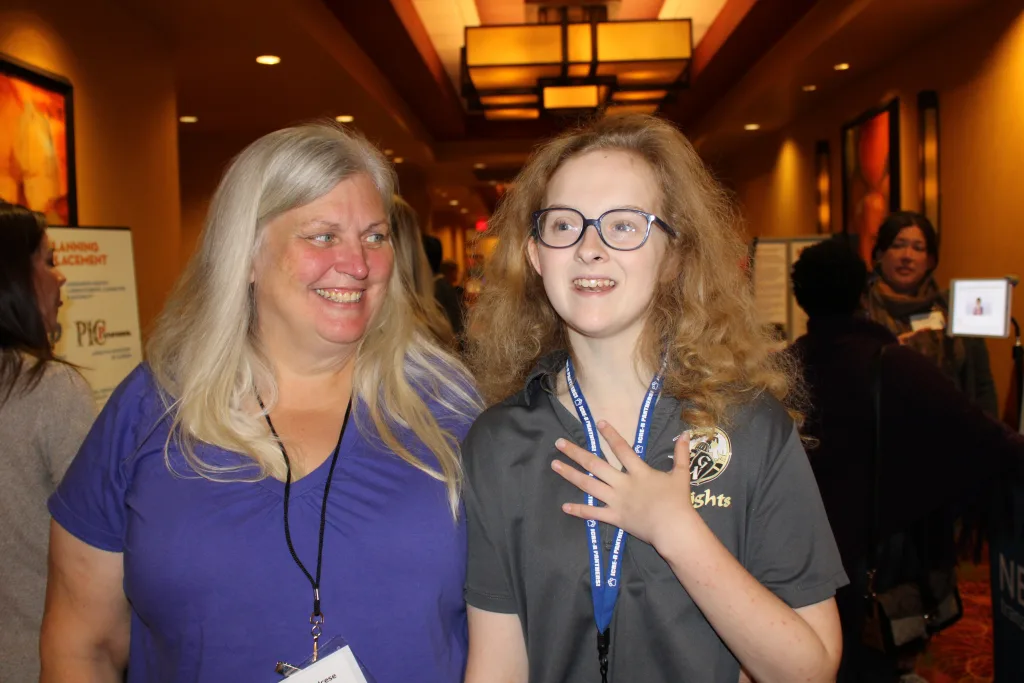
DSCC participant Vera Lynn Lindquist, 18, attended the transition conference both in 2022 and 2023. She has autism, attention-deficit hyperactivity disorder, anxiety disorder from childhood, tinnitus and hearing loss.
Vera enjoyed exploring the transition conference’s booths and sharing about the goals she has worked on.
“I know a lot more about autism awareness and speaking up and speaking out…” Vera said. “I’ve self-advocated at school. I reached out to my teacher on my laptop, I emailed him. I was behind on a lesson and let him know. He came and helped (me). It made all my teachers very happy.”
Vera attended the conference both years with her grandmother and legal guardian, Cheryl Calcese.
“We’ve used many of the independence and decision-making strategies we learned about,” Cheryl said. “Vera got a debit card. She has a money limit on it when she goes out for pizza and other group social events. She has an app on her phone to figure out the tax and tip. She adjusts everything according to her budget. She’s doing well with that and hasn’t gone over her budget once!”
The transition conference also gave Vera an opportunity to build her self-esteem and self-advocacy skills.
“She feels very comfortable at this conference, and it shows. She’s visiting with vendors and participating in sessions. Here her independence is shining. It’s very cool,” Cheryl said.
Cheryl also gained more resources and knowledge for herself.
“It’s always an amazing opportunity to learn and connect,” she said. “Thanks to the conference, I understand more about legal guardianship for adults and where to go for the paperwork for free or low-cost.”
Cheryl also learned more about the Americans with Disabilities Act (ADA).
“Vera and other students with disabilities had to miss their school homecoming,” she said. “In one of the sessions, I learned that the ADA covers social events. I connected with an organization that can help me make sure these students won’t miss their prom.”
Ariana’s mom, Luz, said she is grateful to everyone who organizes the conference so she can help give Ariana the best quality of life as she grows into adulthood.
Ariana’s father, Edgar, said he felt like the world was closing in on him before he attended the conference. By the end of last year’s event, he said he felt motivated after learning how conference speakers with disabilities advocated for themselves to have greater independence and a better quality of life.
Register and See the 2024 Schedule
The general public and professionals can visit the Statewide Transition Conference website to register and see more details.
For DSCC families, the conference schedule and more details are available:
- In English at: https://go.uic.edu/DSCC2024TransitionConferenceInfo
- In Spanish at: https://go.uic.edu/DSCC2024TransitionConferenceInfoSp
DSCC participants can register online:
- DSCC Transition Conference Sign-Up in English
- DSCC Transition Conference Sign-Up in Spanish
The deadline to register is Oct. 18. Please note that space is limited. Registration may close earlier if all spaces are filled.
Need financial help to attend?
If you are a DSCC participant family, we may be able to fund the conference-related expenses for your child and family, caregivers, nurse and/or personal attendant. These expenses include the cost of the hotel and transportation.
The Illinois Statewide Transition Conference Steering Committee has also set up a scholarship program to help youth with disabilities and their families attend the conference. The scholarship is open to:
- Individuals with disabilities
- Immediate family members of a person with a disability
- Guardians for a person with a disability
The amount of scholarship money available depends on each person’s needs.
Please fill out this scholarship form to apply. (The scholarship form is also available in Spanish.)
The deadline to apply for the conference scholarship is Oct. 18.
For more details or help with registration, please contact DSCC Title V Transition Specialist Claire Cook at (800) 322-3722, ext. 21812, or clairer3@uic.edu.
In-Depth Training Opportunity in Chicago for Families and Caregivers of Children with Complex Medical Needs

This free in-person training will take place July 24-25 at UIC’s Simulation and Integrative Learning Center in Chicago.
Registration is now open for a special in-person training program for the families and caregivers of children with complex medical needs.
This free two-day training will take place Wednesday, July 24, through Thursday, July 25, at the University of Illinois Chicago Simulation and Integrative Learning (SAIL) Center on the fifth floor at 1220 S. Wood St. in Chicago.
Families have expressed the need for more support for parents/caregivers of children with complex medical needs. We are excited to partner with Almost Home Kids to provide this valuable training opportunity. It will offer essential tools and knowledge to help you in your caregiving journey.
The training will be from 8 a.m. to 4:30 p.m. each day. The in-depth curriculum will include:
- Reducing the risk of infection
- Skin care
- Daily care of the child with a tracheostomy and ventilator
- Activity and movement
- Equipment and alarms
- Gastrostomy care and feeding
- Tracheostomy basics
- Respiratory assessment and interventions
- Ventilator training with hands-on practice
- Emergency preparedness
- Caregiver resiliency and well-being
- Simulation learning experience
You can also see the Caregiver Simulated Training flyer for more details.
Please sign up online to participate in the training. There is no cost to attend.
For more information, email connect@almosthomekids.org or contact Yolanda Rivera at yrivera@luriechildrens.org.
This training is part of our efforts to use federal funding from the American Rescue Plan Act to improve support and services for families of children with complex medical needs.
Almost Home Kids (AHK) provides a bridge from hospital to home through an innovative community-based care system for children with medical complexities. Its services include:
- Responding to the needs of families
- Training caregivers
- Advocating for accessibility and inclusion
- Educating healthcare professionals
Almost Home Kids has locations in Chicago, Naperville and Peoria.
DSCC Creates New Tool to Improve Families’ Access to Available In-Home Nursing
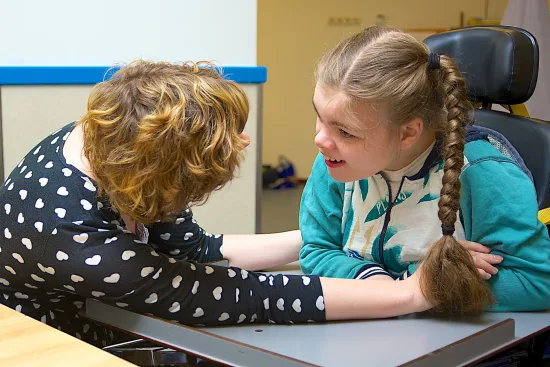
NurseNet helps Home Care Program families connect with nursing agencies to find available nurses in your area.
Finding in-home nurses can be challenging for many families caring for children and adults with complex medical needs.
We’ve created a new tool to help you find and connect with available nursing agencies in your area.
NurseNet aims to bridge the gap between Illinois families who need nursing and home health nursing agencies with available nurses.
Families of individuals enrolled in the Home Care Program can use NurseNet to share their nursing needs. Nursing agencies that are enrolled with the Division of Specialized Care for Children (DSCC) can share information about where nurses are available.
This information can help your family find suitable nursing care. It can also help nursing agencies identify opportunities to serve families.
Anyone can use NurseNet to search for general nursing opportunities across the state.
The search is set up for families and nursing agencies to find and share what they need easily. As a family enrolled in the Home Care Program, you can log in to NurseNet and enter your nursing needs.
Nursing agencies can see this information and contact your family within NurseNet if they have a potential nursing opportunity in your area that matches your child’s care needs. You can also use NurseNet to see where nursing opportunities are available throughout Illinois.
Nursing agencies enrolled with DSCC can log in to NurseNet and enter all areas of the state where they have nurses available. Nursing agencies can also see where families have nursing needs and connect with those families to provide nursing care.
Visit the NurseNet page on our website to learn about how NurseNet can help both families and nursing agencies. You can also find helpful videos and guides on how to use NurseNet.
We understand the search for in-home nursing can be frustrating and overwhelming. That’s why we created this tool to help you share your nursing needs and connect with nursing agencies with available nurses.
We are excited to offer this tool to help provide nursing connections to our participant families enrolled in the Home Care Program!
Meet Our Medical Advisory Board Member Dr. Carolyn Foster
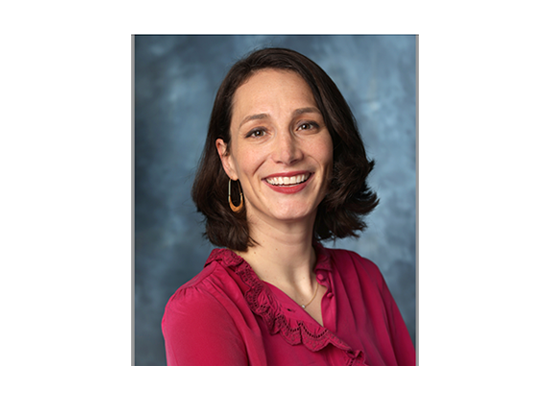
“I want to improve the delivery of care to kids and families who have the most significant medical needs.”
Dr. Carolyn Foster is a physician and researcher who has dedicated her career to improving the care and quality of life for children with complex medical needs and their families.
Therefore, serving on the Medical Advisory Board (MAB) for the Division of Specialized Care for Children (DSCC) was a natural fit.
Foster joined the board in 2020. She brings her perspective as a provider as well as 15-plus years of research focused on home health care for children with complex medical needs.
“I was acutely aware from my own patients of the role DSCC played in helping them,” Foster said. “I felt I could bring my experiences as a health services researcher and my understanding of how we evaluate healthcare services and what we know about kids with complex medical needs.”
Foster is currently an attending physician at Ann and Robert H. Lurie Children’s Hospital of Chicago in advanced general pediatrics and primary care. She is also an assistant professor of pediatrics at Northwestern University Feinberg School of Medicine.
Her research centers on developing and evaluating healthcare delivery interventions and healthcare policies for children with medical complexity and disability. The purpose is to maximize health outcomes for these children and improve how well their family members and caregivers navigate their systems of care.
Foster is particularly interested in improving both the access to and the quality of home and community- based health care for children to help them live safe, independent and full lives at home, school and beyond.
“I had a family member who had a health condition that impacted her experience in the day-to-day world, and it motivated me to be a physician. When I was in training, I appreciated this tool of using health services research to improve how we deliver care,” she said.
“I want to improve the delivery of care to kids and families who have the most significant medical needs. There is an ongoing gap in how we serve that population, so I want to put my effort there… This patient population deserves a voice, and I’m hoping to further emphasize that.”
Foster said she appreciates DSCC’s work to shed light on these issues statewide. She is happy to help advise and cheer on these efforts.
“Having a child who has a special healthcare need or disability or complex medical problem is really challenging because the health care, education and community resources are not always talking to one another,” she said.
“DSCC is one of those key programs in the state of Illinois that really provides an important function in making it a little easier for families by helping with care coordination and getting what they need for their child.”
Learn more about Foster’s latest research study below:
DSCC’s New Home Care Family Outreach Associate is Available to Support Families
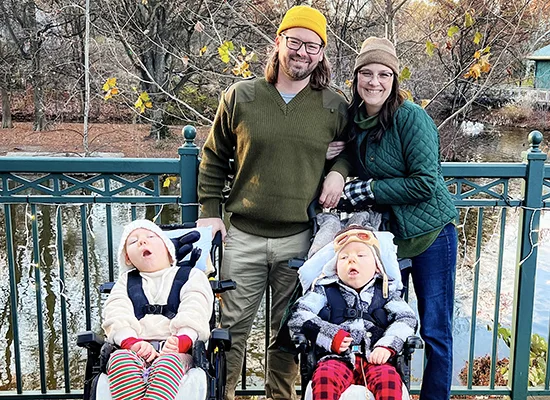
Our Home Care Family Outreach Associate Erica Stearns can offer support, connection and empowerment for DSCC families caring for loved ones with complex medical needs.
We understand that caring for a loved one with complex medical needs can pose unique and sometimes unexpected challenges for families.
We are excited to introduce a new Home Care Family Outreach Associate (HCFOA) on our team who understands these challenges and can provide heartfelt support.
With lived experience as a patient, parent and caregiver, our HCFOA can recognize shared experiences and guide families through the complexities of multiple systems of care.
Our HCFOA also works to create a sense of community for caregivers within the Division of Specialized Care for Children (DSCC). In this community, families can feel supported, empowered and more confident in their caregiving journey.
Erica Stearns recently joined DSCC as our first HCFOA. She is the proud parent of two children, Margot and Caratacus, who have been enrolled in the Core and Home Care programs since 2016. They reside in southern Illinois and enjoy the beauty of the Shawnee National Forest.
Erica also serves as the co-chair of DSCC’s Family Advisory Council. You can learn more about Erica, her family and her caregiving journey in The Stearns Family Story.
As our HCFOA, Erica works hand-in-hand with families and caregivers to:
- Create trusting partnerships
- Offer tailored support in addition to the care coordination services they receive from DSCC
- Provide essential caregiver resources
Erica helps ensure that caregivers are equipped with the knowledge and skills they need to advocate for their children and navigate complex systems of care. She can help support your family as you navigate:
- Adjusting to a new norm
- Needing support for your child/loved one’s medical needs and increased level of care
- Looking for guidance on what to expect
- Wanting to connect with other families
Families can request to connect with Erica in several ways. You can ask your DSCC care coordination team to refer you to the HCFOA. You can also email a request to speak with Erica at DSCC-FamilySupport@uic.edu.
For more information about the HCFOA and Erica, please visit our Home Care Family Outreach page.
Research Study Seeks Families to Help Improve Home Health Care for Children
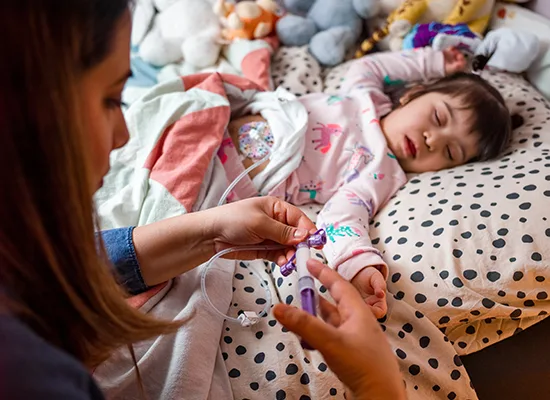
“SafeCare@Home4Kids” aims to understand and prevent safety issues at home for children with medical complexity
A research study is looking for families to help improve home health care for children with complex medical needs.
The study is called “The SafeCare@Home4Kids Learning Lab: Designing Safer Healthcare at Home for Children.” It wants to learn from parents of children with medical complexity about what it is like to care for your children at home, including giving your children complex medication and using your children’s devices. The study aims to find ways to help prevent safety problems with this complex caregiving at home.
Dr. Carolyn Foster of Ann and Robert H. Lurie Children’s Hospital of Chicago is leading the research team. Foster is also a member of the Division of Specialized Care for Children’s (DSCC) Medical Advisory Board.
By sharing your experiences, you can help “SafeCare@Home4Kids” find ways to better support and help parents while reducing problems and challenges at home.
What does the study involve?
Participation in the study will take about one week. For seven days, you will send photos or text-based messages about your experience with your child’s medication-related activities and devices at home. Please note, if you do not have a device, the study researchers will loan you one.
After the week is over, you will meet with research team members to talk about your messages. You will also participate in a “critical decision methods” interview about how you:
- Identify problems with your child’s medication or device
- Communicate the problem
- How you have problem-solved these issues in the past
The research team will keep your answers confidential. If you complete all study steps, you can receive up to $195 by virtual gift card.
How do I participate?
You can enroll in the “SafeCare@Home4Kids” study if you:
- Speak English or Spanish
- Have a child who is 17 years old or younger with a disabling complex chronic condition who uses an implanted medical device to receive medication at home (such as a gastrostomy tube)
Please email fosterlab@luriechildrens.org or call (312) 227-2510 to enroll or ask questions.
For more details about the “SafeCare@Home4Kids” study and DSCC’s involvement, please visit https://dscc.uic.edu/dscc-partners-in-research-study-to-improve-home-health-care-for-children/.
You can also see the study flyer for more information.



